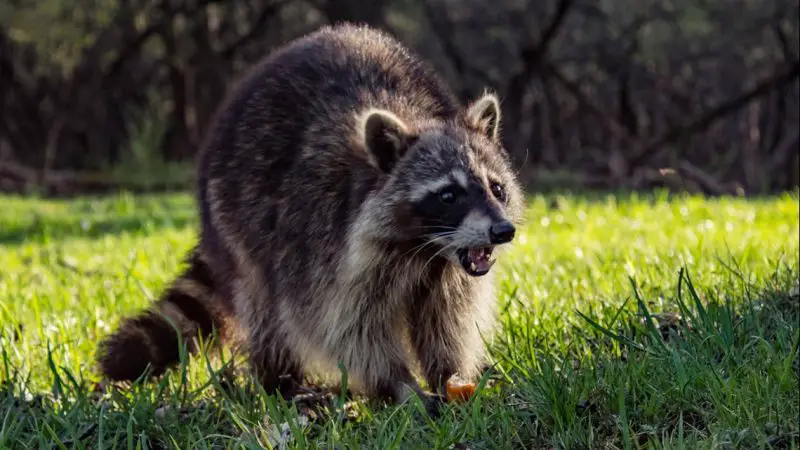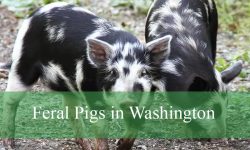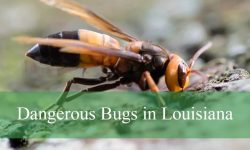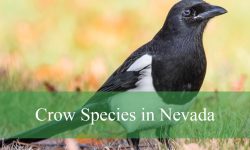Across Georgia’s woodlands, suburbs, and even bustling urban centers, raccoons are not just rummaging through trash cans anymore—they’re opening latches, solving complex problems, and outwitting traps. Sightings of these nocturnal mammals displaying uncanny intelligence have become increasingly common, leading many locals to wonder: are raccoons in Georgia actually becoming more intelligent? This isn’t a case of folklore or exaggeration. Scientific observations and citizen reports alike are documenting behaviors that point to an upward trend in raccoon cognitive abilities.
As raccoons continue to adapt to human environments, their problem-solving skills appear to be evolving rapidly. In many Georgia communities, homeowners now report raccoons bypassing child-proof locks, timing their appearances to avoid security cameras, and even working in small coordinated groups. While raccoons have always been clever creatures, something seems to be changing. The question is no longer whether they are smart, but why they are getting smarter—especially in Georgia.
To answer this, we’ll explore a combination of factors—from environmental pressures and urbanization to dietary shifts and genetic variation. We’ll also dig into the behavioral science behind these clever critters, examine local case studies, and consider what this rising raccoon intelligence might mean for Georgia’s ecosystems and human-raccoon coexistence.
The Cognitive Legacy of Raccoons: Natural Intelligence Amplified

Raccoons (Procyon lotor) have long been known for their intelligence. In controlled studies, they’ve demonstrated memory retention on par with primates and remarkable spatial awareness. Their dexterous front paws—complete with nearly human-like sensitivity—allow them to manipulate objects with precision. However, what’s being observed in Georgia seems to go beyond innate ability.
Several studies conducted in the Southeastern United States have tracked changes in raccoon problem-solving rates over time. One landmark study revealed that raccoons exposed to urban environments showed a 30% higher success rate in solving artificial food puzzles compared to their rural counterparts. This suggests that exposure to complex environments stimulates brain activity and learning, a phenomenon known as environmental enrichment.
In Georgia’s rapidly urbanizing regions—like Atlanta, Macon, and Savannah—raccoons are not only exposed to more challenges but are also being rewarded for overcoming them. Opening a cooler lid, for instance, can result in a high-calorie meal, reinforcing the behavior. These environmental challenges, repeated night after night, act as cognitive gymnasiums, effectively “training” raccoons to think in increasingly complex ways.
Urbanization and Evolutionary Pressure in Georgia
One of the primary reasons raccoons in Georgia may be developing enhanced intelligence is the rapid pace of urban sprawl. As forests give way to highways, subdivisions, and strip malls, raccoons are forced to adapt to new environments teeming with artificial hazards, barriers, and opportunities. The raccoons that adapt thrive. Those that do not, disappear.
This dynamic creates a classic scenario for natural selection. Urban raccoons that demonstrate cleverness—by finding food in difficult places or avoiding human detection—pass on their genes. Over generations, this could lead to a population shift where intelligent behavior is no longer rare, but standard.
Interestingly, this selective pressure seems especially pronounced in Georgia. With its mixture of dense woods and rapidly expanding urban centers, Georgia provides the perfect hybrid environment where rural raccoons and urban-adapted raccoons intermix. This interface might serve as a crucible for the evolution of behavioral flexibility, blending the survival instincts of the wild with the cunning adaptations of the city.
The Role of Diet and Brain Development
Diet plays a surprisingly crucial role in cognitive development, not just in humans but across the animal kingdom. In Georgia, raccoons have access to a far more calorie-dense diet than in the past. From restaurant dumpsters in Atlanta to backyard feeders in Augusta, raccoons are feasting on rich, processed foods that may be fueling neurological growth.
Higher caloric intake supports greater brain development, especially in younger raccoons during critical growth phases. In fact, there’s emerging speculation among wildlife biologists that the availability of high-fat, high-sugar human food waste may be indirectly enhancing raccoon brain power. What’s more, raccoons that learn how to access these high-value food sources are also teaching their young, accelerating the transfer of learned behavior from one generation to the next.
In effect, Georgia’s raccoons are not just adapting to their environments—they’re eating their way to smarter brains. The correlation between access to human-derived food and advanced problem-solving behavior has been observed in other urban wildlife species as well, but raccoons seem particularly well-equipped to exploit this advantage.
Behavioral Shifts Observed Across Georgia
From the suburbs of Marietta to the coastal areas of Brunswick, anecdotes about raccoon intelligence are becoming increasingly bizarre and impressive. Homeowners report raccoons opening pet doors, manipulating sliding latches, and even coordinating to steal dog food from garages. In some rural regions near national forests, wildlife watchers have even documented raccoons engaging in what appears to be turn-taking behavior—waiting patiently for one individual to complete a task before another steps in.
These observations suggest that raccoons are exhibiting not just instinctual problem-solving, but also rudimentary forms of planning and cooperation. Such behaviors were once thought to be the exclusive domain of more social species like wolves or primates.
The Georgia Department of Natural Resources has even begun cataloging raccoon reports in urban settings as part of an ongoing behavioral ecology project. Preliminary findings show that raccoons living in high-density areas are more likely to attempt multiple strategies for overcoming barriers compared to those in rural areas. In short, urban raccoons in Georgia aren’t just surviving—they’re experimenting.
Human Influence and Cognitive Acceleration
Unintentionally, humans may be directly contributing to the increased intelligence of raccoons. Surveillance cameras, automated trash bins, and motion-activated lights are all designed to deter wildlife, but they might actually be functioning as training mechanisms. A raccoon that figures out how to time its movements or avoid triggering a motion sensor gains an advantage, and such learned behaviors are likely being passed to offspring or copied by other raccoons.
Moreover, Georgia’s trend toward backyard chicken coops and composting has unintentionally created a buffet of intellectual challenges for raccoons. Each new design—be it a latch, a lock, or a raised pen—presents a new puzzle. Solving it results in a nutritional reward. Raccoons, with their long-term memory and tactile sensitivity, are well-suited to this challenge-and-reward cycle.
There’s also growing evidence that raccoons possess a form of observational learning. A raccoon might watch a human open a gate or use a sliding lock and replicate the motion. In cities like Athens and Decatur, residents have filmed raccoons seemingly imitating basic human actions to gain access to food or shelter.
Are We Witnessing a Microevolutionary Event?
The term “microevolution” refers to small-scale evolutionary changes that occur within a species over relatively short periods. What’s happening with raccoons in Georgia may represent just such an event. When raccoons with higher problem-solving capabilities reproduce at greater rates, those traits become more common in the population. Over several generations, this can lead to noticeable shifts in behavior, brain structure, or even physical dexterity.
In Georgia’s unique mixture of environmental pressure and abundant resources, the conditions for microevolution are particularly ripe. Some researchers have proposed that raccoons in the Southeast may be forming a subpopulation that is behaviorally distinct from their counterparts in more rural or less urbanized states.
Although genetic testing is still ongoing, behavioral patterns suggest that a cultural transmission of knowledge—similar to that observed in chimpanzee communities—may be taking place. Young raccoons appear to be learning through imitation and repetition, not merely instinct. This kind of socially facilitated learning accelerates change and raises profound questions about the future of human-animal interactions.
Ecological Implications for Georgia’s Wildlife
The rise of hyper-intelligent raccoons poses both opportunities and challenges for Georgia’s broader ecosystem. On one hand, raccoons are filling ecological niches that may have been left vacant by other species. On the other hand, their increased adaptability and resourcefulness could put pressure on ground-nesting birds, amphibians, and even smaller mammal populations.
There are also growing concerns about competition with other intelligent urban wildlife like foxes and coyotes. In areas where food sources overlap, raccoons may be edging out these other animals due to their problem-solving edge. This could destabilize local food webs, especially in protected habitats near cities like Athens and Columbus.
From a human perspective, conflicts are likely to increase. More intelligent raccoons mean more property damage, more confrontations with pets, and more calls to pest control services. Traditional deterrents may become obsolete as raccoons continue to adapt and outsmart new security measures. Georgia residents may need to rethink their approach to urban wildlife management entirely.
Raccoons and the Future of Urban Wildlife
The raccoons of Georgia offer a fascinating glimpse into the future of wildlife adaptation. As cities expand and natural habitats contract, more animals will be faced with the same survival dilemma: adapt or vanish. Raccoons, it seems, are not only adapting—they’re thriving. And their growing intelligence could mark a turning point in the way we understand urban ecosystems.
As more data is gathered and more behaviors are observed, researchers are beginning to consider whether intelligence itself might be a selectable trait in the age of urbanization. If so, raccoons in Georgia might just be the first of many species to undergo rapid behavioral evolution driven not by wilderness, but by human society.
While this might sound like science fiction, it reflects a broader truth: cities are becoming evolutionary arenas. Animals like raccoons are learning faster, living smarter, and passing on their knowledge at unprecedented rates. In Georgia, these changes are especially visible—turning the state into a living laboratory for studying intelligence in the wild.
FAQs About Hyper-Intelligent Raccoons in Georgia
What evidence suggests raccoons in Georgia are becoming more intelligent?
Multiple observations and studies report raccoons solving complex problems, bypassing barriers, and even exhibiting learned behaviors, especially in urban Georgia.
Are raccoons learning from humans?
Yes, raccoons show signs of observational learning and can imitate simple human actions to gain access to food or shelter.
Is this happening only in Georgia?
While raccoons are intelligent across North America, the combination of Georgia’s urban sprawl and natural landscapes seems to be accelerating this trend in the state.
Can this be considered evolution?
The behavioral changes seen may be examples of microevolution, where traits like intelligence become more common over generations due to environmental pressures.
Should Georgians be concerned?
While fascinating, smarter raccoons may increase conflicts with humans. Understanding their behavior is essential for effective wildlife management.
Conclusion: A Glimpse Into an Intelligent Future
The rise of hyper-intelligent raccoons in Georgia is not a myth, nor is it a fleeting anomaly. It is a real, observable trend rooted in environmental complexity, evolutionary pressure, and human influence. As Georgia continues to urbanize and raccoons continue to adapt, the relationship between humans and these clever mammals will grow increasingly complex.
Understanding the reasons behind their intelligence is the first step toward managing their presence effectively. But it also offers something deeper: insight into the astonishing flexibility of life itself. In a world where nature and human development collide, raccoons are proving that survival belongs to the curious, the adaptable, and the surprisingly smart.






